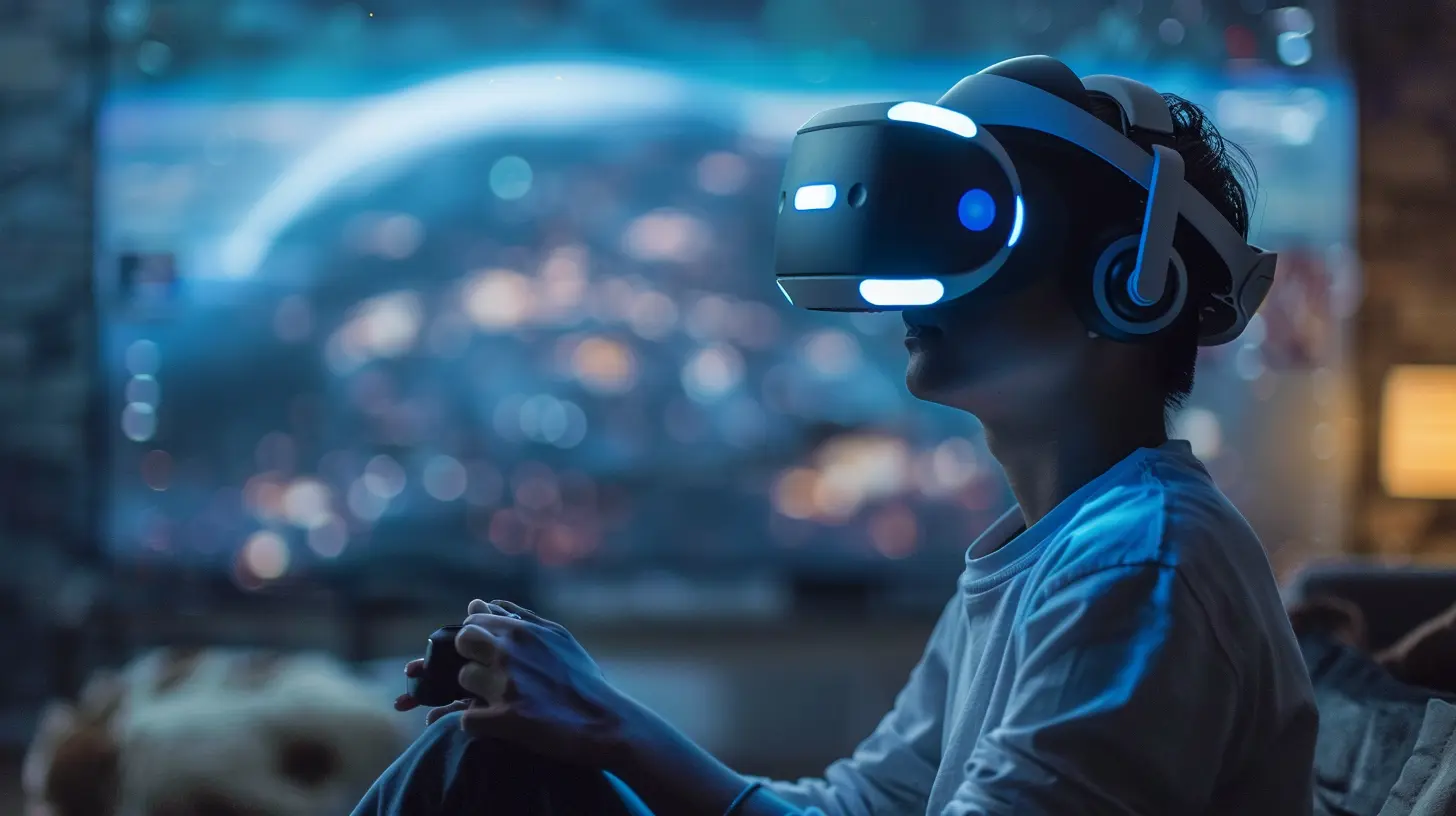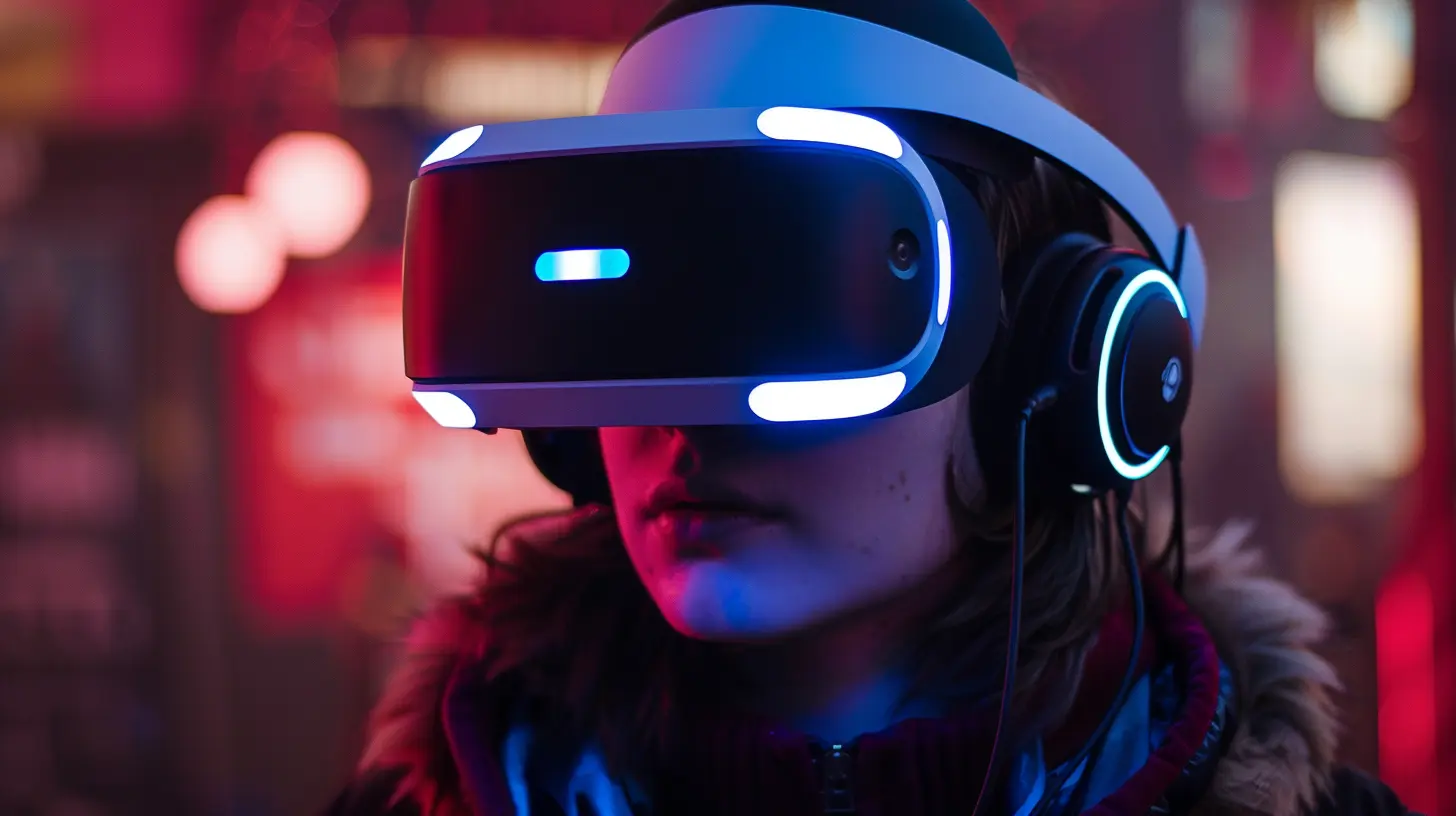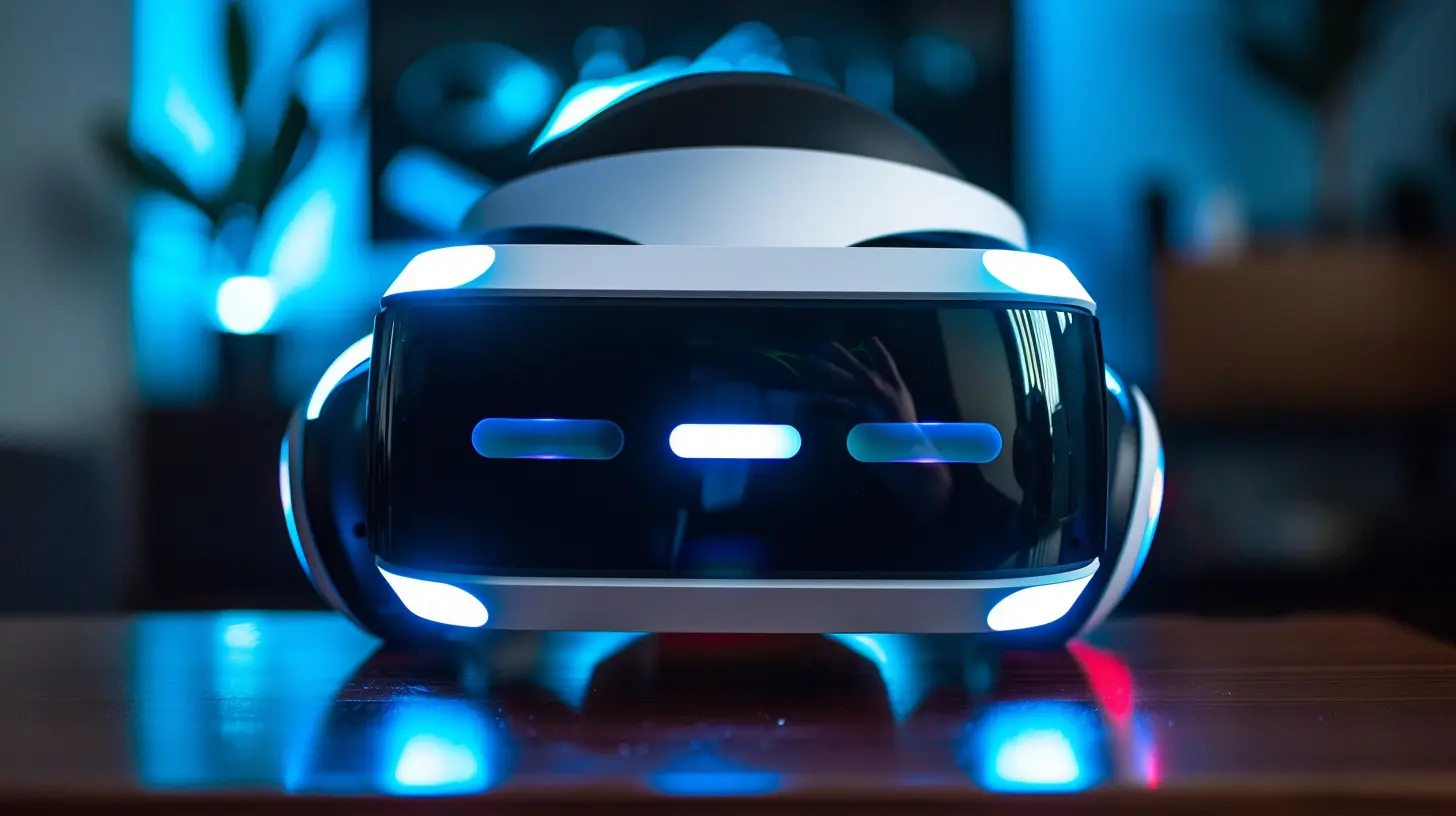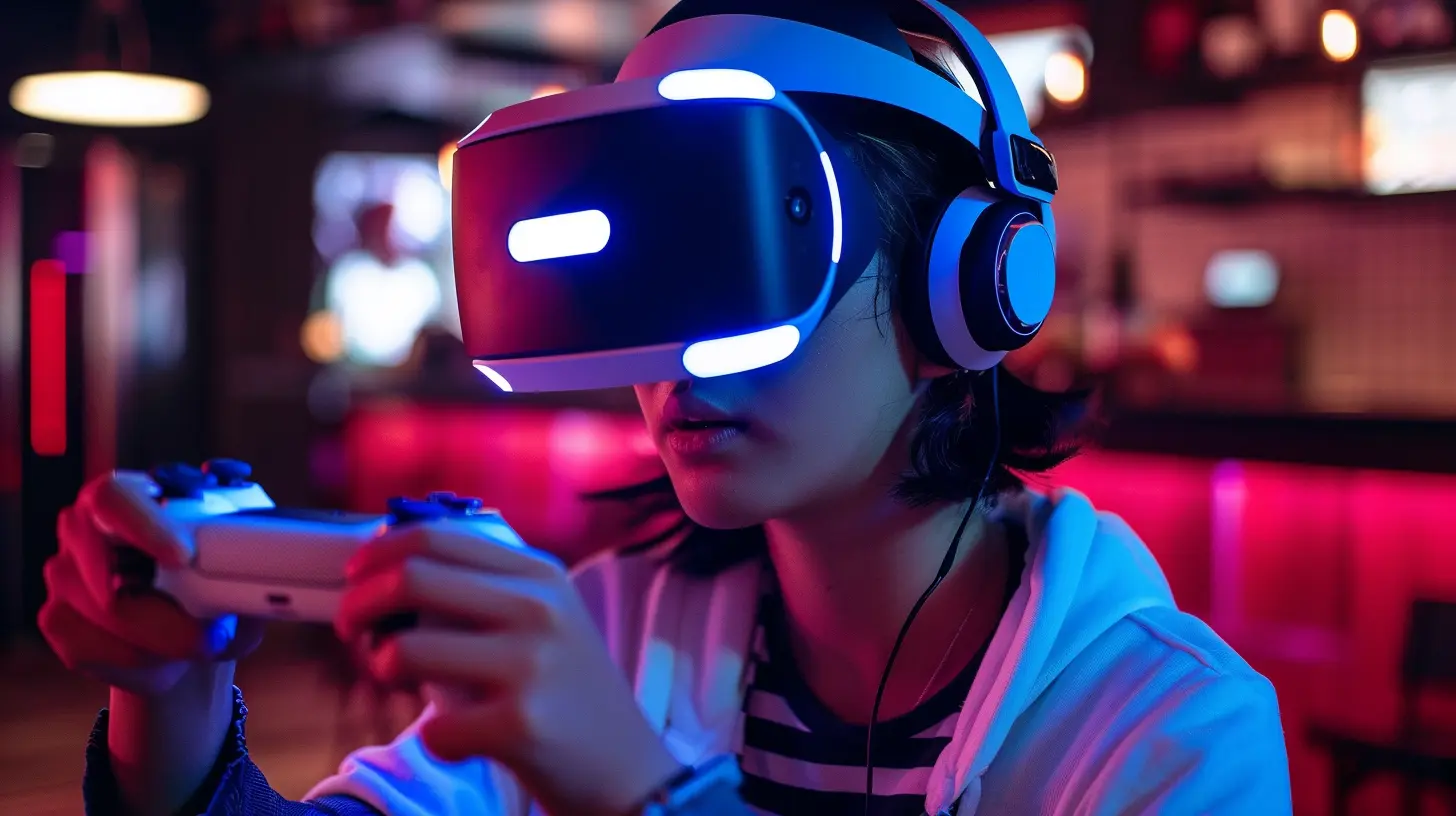Is Virtual Reality the Future of Console Gaming?
20 September 2025
Virtual reality (VR) has been a hot topic in the gaming industry for years. From its early days as a novelty experience to its current status as a growing sector of the market, VR has come a long way. But is it really the future of console gaming? Will we all soon be strapping on headsets instead of gripping controllers? Let’s take a deep dive into the possibilities, challenges, and what VR could mean for the future of gaming consoles.
The Evolution of Console Gaming
Remember the golden era of gaming when the biggest leap was from pixelated 2D graphics to full-fledged 3D worlds? Consoles have continuously evolved, from the classic NES to the cutting-edge PlayStation 5 and Xbox Series X. Every generation brings better graphics, smoother gameplay, and more immersive experiences.However, the fundamental way we interact with games has remained largely the same—controllers, screens, and a comfortable couch. VR, on the other hand, aims to change that entirely by placing players inside the game rather than just in front of it.
But does VR truly have what it takes to replace traditional console gaming? Or is it just another gaming gimmick? 
The Rise of Virtual Reality in Gaming
VR isn't exactly a new concept. It has been floating around since the early 90s, but it wasn’t until devices like the Oculus Rift, HTC Vive, and PlayStation VR entered the scene that it started making waves.Sony, one of the major players in the console market, has already dipped its toes into VR with the PlayStation VR and the newer PlayStation VR2. While these have been impressive, they haven't yet fully replaced traditional gaming experiences.
As technology advances, VR is becoming more accessible, with lighter headsets, better tracking, and more affordable pricing. But the real question remains: will it become mainstream enough to be the dominant form of console gaming? 
The Potential of VR in Console Gaming
VR has a lot going for it, especially when it comes to immersion. Imagine playing a first-person shooter where you physically duck behind cover instead of just pressing a button. Or a racing simulator where you're actually sitting in the driver's seat, looking around as if you were on a real track.Here’s why VR could be the future of console gaming:
1. Next-Level Immersion
VR puts players inside the game world, making every experience feel more real. Whether it’s horror, sports, or open-world adventures, VR has the potential to make players feel like they are truly there.2. Innovative Gameplay Mechanics
Traditional gaming is limited by controllers, but VR allows for interaction using hand gestures, voice commands, and full-body movement. This opens up entirely new ways to play games that weren’t possible before.3. Social and Multiplayer Possibilities
VR chatrooms and multiplayer experiences are already gaining traction. Imagine teaming up with friends in a VR battlefield or exploring vast virtual worlds together in real-time. The social aspect of gaming could be revolutionized.4. Expanding Genres and Possibilities
VR is not just for action games. It has potential in puzzle games, horror experiences, storytelling adventures, and even fitness-based games. The variety of genres that VR can enhance is enormous.
The Challenges Holding VR Back
As exciting as VR sounds, it’s not without its fair share of hurdles. Before it can truly take over the console scene, some major obstacles need to be addressed.1. Cost and Accessibility
VR headsets are still relatively expensive. While console gaming only requires a system and a TV, VR demands additional hardware, making it a pricier investment for gamers.2. Motion Sickness and Comfort Issues
Not everyone adapts well to VR. Some players experience motion sickness, headaches, or fatigue after prolonged use. Until these issues are minimized, VR will struggle to appeal to the wider gaming audience.3. Limited Game Library
Compared to traditional console games, the VR library is still smaller. While some titles stand out, there aren’t enough AAA games that justify switching entirely to VR gaming.4. Physical Constraints
VR often requires more space to move around, making it less practical for people with smaller rooms or shared living spaces. Not everyone has the luxury of a dedicated VR gaming area.5. Battery Life and Hardware Limitations
Wireless VR headsets have battery limitations, while wired ones restrict movement. Hardware improvements are necessary to make VR as seamless as traditional gaming.Will VR Replace Traditional Console Gaming?
The big question remains—will VR replace traditional console gaming, or will it just be another gaming niche?The truth is, while VR is an exciting evolution, it’s unlikely to completely replace the traditional gaming experience anytime soon. Instead, it’s more plausible that VR will continue to exist alongside standard gaming consoles, much like how handheld gaming coexists with home consoles.
Sony and Microsoft are already experimenting with VR, but they still heavily invest in traditional gaming. This suggests that while VR is important, it's not the exclusive future of console gaming—at least not yet.
The Future of VR in Console Gaming
Looking ahead, VR is bound to improve. Lighter, cheaper, and more powerful headsets will gradually eliminate many of the barriers holding it back today. Here’s what we could see in the future:- Wireless, Standalone VR for Consoles – No more clunky cables, just seamless plug-and-play VR experiences.
- More AAA VR Games – As the market grows, major developers will invest more in VR-exclusive titles.
- Better Integration with Standard Consoles – Consoles may offer hybrid gameplay, where players switch between VR and traditional modes.
- AI and Haptic Feedback Innovations – Imagine feeling the wind in racing games or the vibrations of a sword clashing in battle.
The future is promising, but VR still has a long way to go.
Final Thoughts
So, is virtual reality the future of console gaming? Well, it certainly has the potential to redefine the way we play, but it’s not quite ready to replace traditional gaming entirely. Instead, VR is more likely to become a powerful addition rather than a total replacement.For now, classic console gaming remains king, but VR is steadily making its way into the mainstream. As technology improves and developers continue to innovate, we could see a future where VR is just as common as picking up a controller.
Would you trade in your console for a full-time VR gaming experience? Or do you prefer the comfort of the classic setup? Let’s hear your thoughts!
all images in this post were generated using AI tools
Category:
Gaming ConsolesAuthor:

Marcus Gray
Discussion
rate this article
1 comments
Quade Hamilton
VR could redefine gaming, but will it conquer our living rooms?
September 25, 2025 at 2:24 AM

Marcus Gray
While VR has the potential to revolutionize gaming, its widespread adoption in living rooms will depend on factors like affordability, space requirements, and user comfort. It's a transformative tool, but its ultimate place in gaming is still uncertain.


